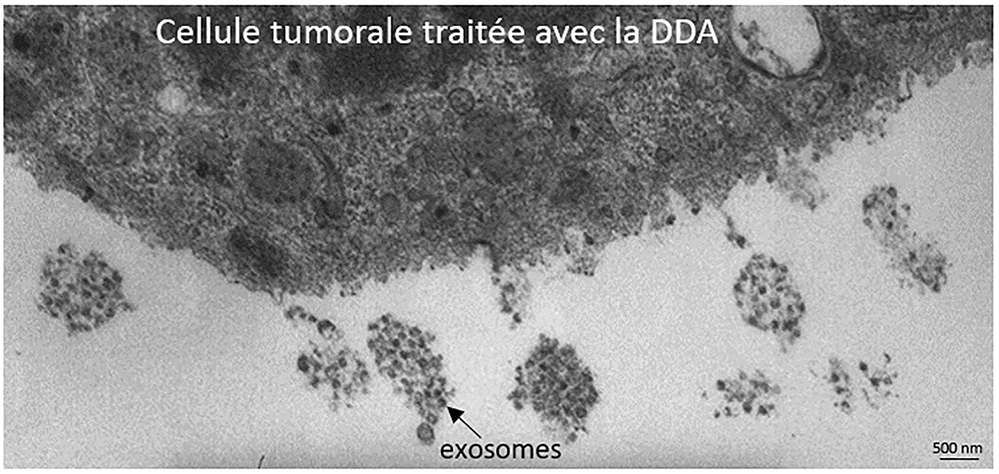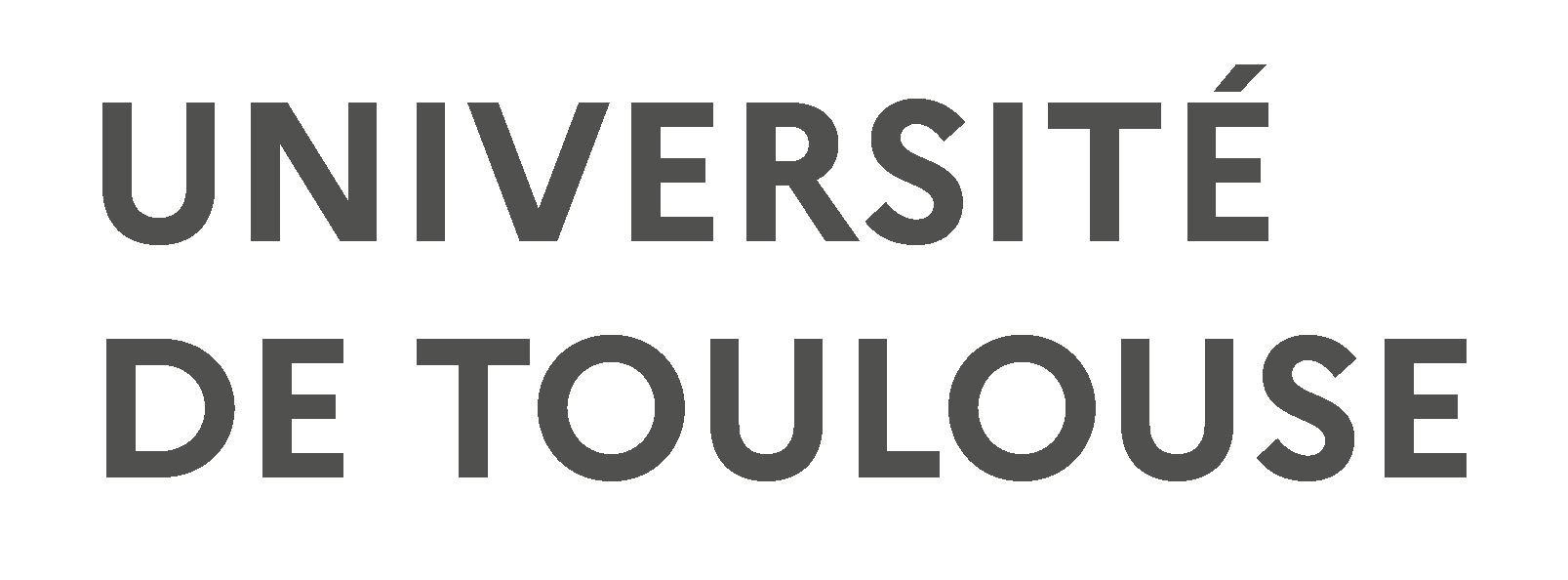A cholesterol derivative to produce reprogrammed tumour exosomes that activate the immune system against tumours
Cancer,
LXR
Biothérapy,
Exosomes,
Dendrogenin A,
Dr Sandrine Silvente Poirot – Team INOV – Cholesterol Metabolism and Therapeutic Innovations
Normal cells release small extracellular vesicles, called exosomes, which play a beneficial role in monitoring tissue integrity and immune response. In contrast, cancer cells release exosomes, which help to inhibit immune defences and promote tumour progression. In the present study, the INOV team shows that a cholesterol derivative present in the human body, dendrogenin A, reprograms the functions of tumour exosomes towards normal functions, by activating a new exosome production pathway in cancer cells. The exosomes thus produced activate the immune system and inhibit tumour growth. This study reveals the possibility of using dendrogenin A as an innovative biotherapy to combat the effects of pro-tumour exosomes.
This study reveals the possibility of using dendrogenin A as an innovative biotherapy to treat various cancers, including melanoma, breast, leukaemia and neuro-endocrine cancers.
One Picture :

©Sandrine Silvente-Poirot Figure: Transmission electron microscopy of a tumour cell treated with dendrogenin A. Treatment of tumour cells with dendrogenin A (DDA), a cholesterol derivative, activates a new pathway for the release of small vesicles of 30 to 150 nm, called exosomes, which stimulate the immune system against the tumour and block tumour progression.
Discover the published article
Autophagy. 2022 Sep 5;1-3. doi: 10.1080/15548627.2022.2116175. Online ahead of print.
Targeting NR1H/liver X receptor with dendrogenin A differentiates tumor cells to activate a new secretory pathway releasing immunogenic anti-tumor vesicles enriched in LC3-II-associated exosomes.
Philippe de Medina, Julio Bunay, Marc Poirot, Michel Record, Sandrine Silvente-Poirot
Collaborations and acknowledgements
The Toulouse Cancer Health Foundation, the National Cancer Institute, the associations against Cancer J’y Vais and My Rose.

Toulouse Cancer Research Center (Oncopole)
Toulouse – FR
Contact us
+33 5 82 74 15 75
Want to join
the CRCT team ?








